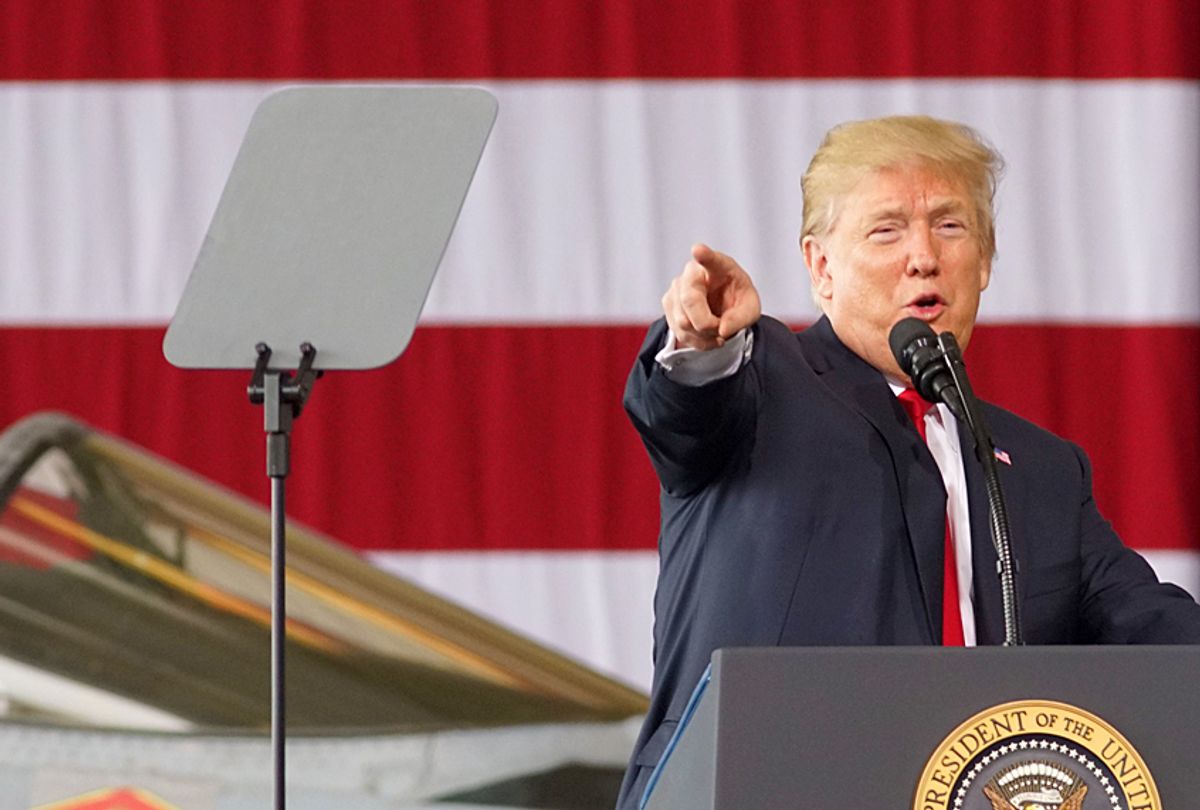 President Donald Trump announced Thursday that his adminsitration will be slapping new tariffs on Chinese imports, a move meant to bolster American corporations while leaving poorer people much worse off.
President Donald Trump announced Thursday that his adminsitration will be slapping new tariffs on Chinese imports, a move meant to bolster American corporations while leaving poorer people much worse off.
"We have a tremendous intellectual property theft situation going on, which likewise is hundreds of billions of dollars," Trump said during his speech announcing the tariffs. "And that's on a yearly basis."
Senate Minority Leader Chuck Schumer (D-NY), in a rare showing of agreement with the president, praised the plan on the chamber floor Thursday.
"China has stolen and extorted the intellectual property of American companies for years without repercussion," he said. "Our intellectual property are our family jewels."
Chinese exploitation of American intellectual property has long been batted around Washington, D.C. as an important issue demanding a solution. But the big problem with Trump and Schumer's favored solution is that it imposes greater burdens on poor people to benefit powerful businesses.
At VoxEU, explain that when it comes to tariffs, "the burden is substantially higher for poor households than for the richest relative to their income."
Under existing law, families shopping for school supplies may pay an extra 17.6 percent more on backpacks, 4 percent on markers, and 6.6 percent on mechanical pencils. These costs add up, and they'll add up to even more with Trump's new tariffs.
The authors conclude: "[T]ariffs function as a regressive tax that weighs most heavily on women and single parents."
And these are just the costs of the tariffs themselves — they don't account for the likely possibility that China will retaliate with measures of its own, triggering a trade war.
If Trump wants to get serious about taking China to task over intellectual property theft, he could take the case to the World Trade Organization, as James Bacchus suggests. But this would involve looking for help from independent arbiters and foreign nations, which Trump made more difficult when he decided to unilaterally impose tariffs on aluminum and steel.



Shares